As one of the most acclaimed, talked-about, and popular shows to hit the small screen in a long time, The Bear needs no introduction.
The hit Hulu series has been riding a wave of momentum all the way to potential awards season glory, recently racking up 13 nominations at the Primetime Emmys. One of The Bear‘s signatures is the chaotic cacophony of sound that brings the kitchen to life, so it was only natural that the people responsible for its soundscape were recognized for their efforts.
Steve “Major” Giammaria and two-time Academy Award nominee Scott D. Smith shared a nod for Primetime Emmy Award for Outstanding Sound Mixing for a Comedy or Drama Series (Half-Hour) and Animation for their work on “Review,” with Giammaria and Evan Benjamin part of the team shortlisted in the Best Sound Editing category for their work on the same episode.
Following on from their Emmy nominations, We Got This Covered had the chance to speak to Giammaria, Smith, and Benjamin about their work on The Bear, how to manage the kitchen chaos, the balance between the signature kitchen scenes and the quieter dramatic moments, the biggest and most difficult challenges they faced across both seasons and plenty more, which you can check out below.
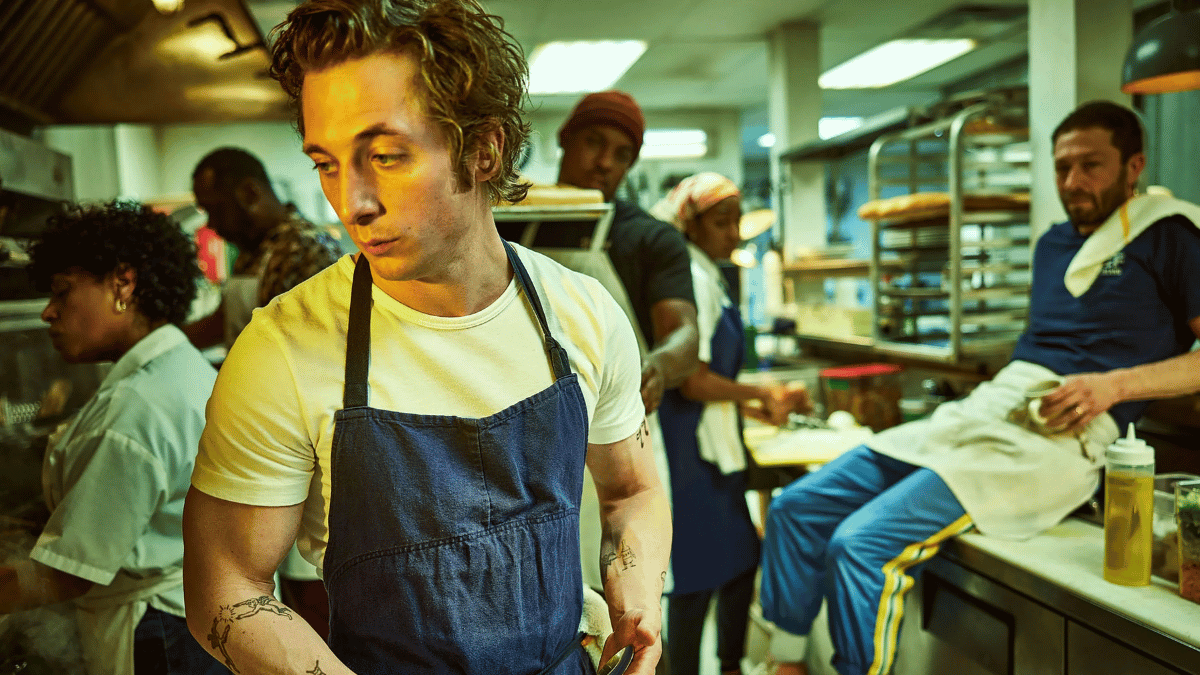
First of all, congratulations on your Emmy nominations for The Bear, how does it feel on both a personal and professional level to get that kind of recognition?
Steve Giammaria: I mean, yeah, it’s nice. It’s always good to get recognized. It’s funny, you know, I was having a conversation the other day; you have to do good work, you have to be on a show that people care about. And it has to be a show that’s flashy enough to get some recognition. So we hit the trifecta, I think, with this one. And, you know, it’s nice that people notice. So yeah, it’s good.
Evan Benjamin: It feels like with something like this, that you’re getting recognized for a lot of the stuff you’ve done for a long time before. That’s how I choose to think of it, too. It’s like a summation in a way, that whatever skills you’re learning that gets you to this level, were the result of all those years of doing all those other things, too. That’s how I like to look at it.
Realism is a requirement when you’re dealing with a kitchen environment, but I was a chef for a long time and ran some high-pressure kitchens, so I also have to chastise you guys for making it a little too real, because there were points where I went into a Tom Hanks from Saving Private Ryan kind of daze when it call came flooding back to me.
Steve Giammaria: Yeah, I mean, I’m glad to hear that, and also I’m sorry! That credit goes to the showrunner Chris Storer. He had a vision, and he has spent time in in kitchens, his sister who’s a producer, and… what’s the word?
Evan Benjamin: Advisor.
Scott Smith: Consultant.
Steve Giammaria: Thank you! Consultant on set for the food stuff. You know, they know exactly what they’re doing. And I have spent a little time adjacent to kitchens, but not as much as them. But yeah, they had a clear vision for the panic attack they wanted to give people so yeah, definitely.
Evan Benjamin: And everyone I talked to who’s worked in a kitchen said something similar to what you said, including our our effects editor, who did a great job. I think a lot of it is that he’s been in kitchens, and he started working on it and told me this is very, very, very accurate about being in the kitchen, and after working on it, I’m glad I never worked in a kitchen!
Scott Smith: I’ve been in kitchens, and I’ve had friends running restaurants and working in kitchens, so I’ve seen a lot of what we already did.
I mean, the money is crap and the hours are worse, so what’s not to love about it?
Scott Smith: A bit like the film business, right?
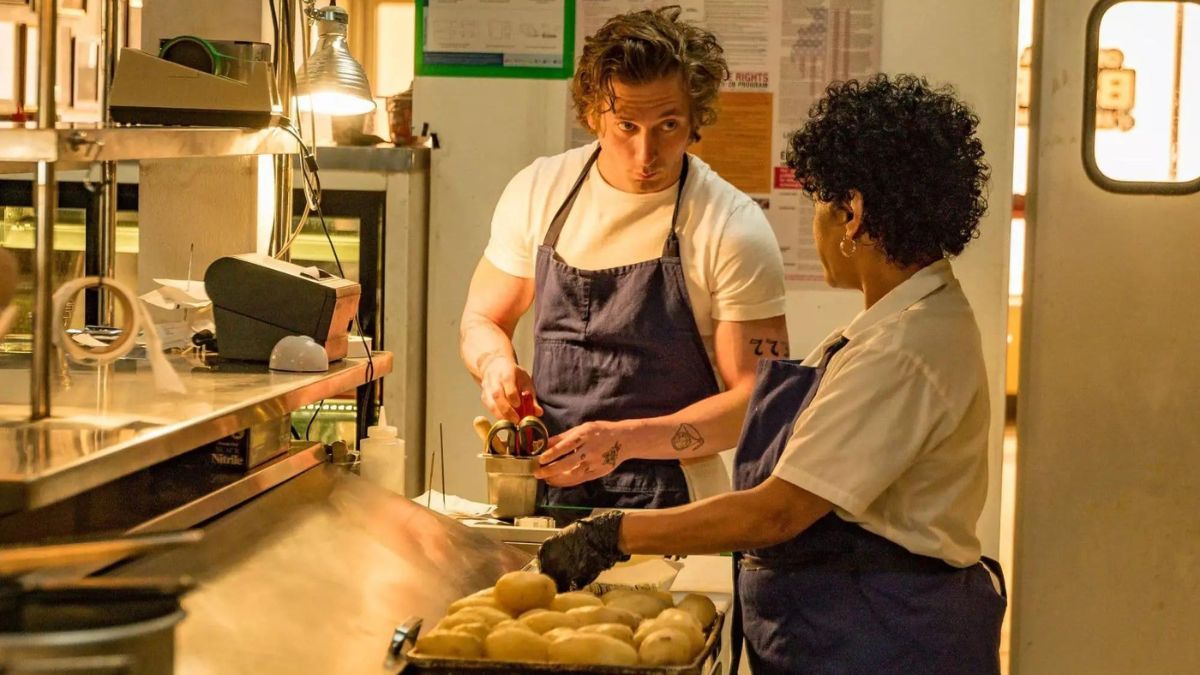
On a base level, sound is always going to be one of the most important things to a story where so much of it is told from the inside of a kitchen, but were you given any specific directives from the likes of Chris Storer on when to push in or pull back from scene to scene? Because having lived that life myself, I know exactly how a certain piece of equipment making a certain sound at a certain time has the potential to completely change the dynamic of both a service and the people in the kitchen.
Steve Giammaria: Yeah, I mean, he definitely had it mapped out again, from the writing stage through production into the edit room, so it came temped out, maybe not necessarily with the sounds that we used, but in the picture edit they had the ticket printer in – let’s say, episode 7 in season 1, “Review” – like, the ticket printer and all of that.
We added more ticket printer, and treated it and things like that, but it was all about that ticket printer. Just, you know, the thing of nightmares. And they plan for it. You can’t wedge in good sound after the fact, you need to plan for it. There has to be room for it. There has to be visuals that support it. So that’s something that on this show was really great, as they thought about it from the beginning. You know, Chris had a plan.
Evan Benjamin: Yeah, they have to make space for all that stuff to happen. That has to be in the writing stage too, and the edit stage. They have to make space for this kind of stuff. So they did. They knew exactly… like he said, they knew they wanted. They told us right off the start, they wanted to be stressful. The exact words were; “we want it to be so stressful.”
I don’t know if those were his exact words – I’m paraphrasing, but it’s pretty close – “we want people to want to change the channel or turn it off, we want people to turn it off.” Which you know, when you listen to it, you think that sounds crazy, but then you realize what he really means by that, and he doesn’t really want you to turn it off, he just wants you to, like you said you were feeling in your Private Ryan crouch.
But that means that it worked. That is what he wanted, and it takes a while to think like that, when you come to it from this point of view, because normally you don’t try to make things that people want to turn off. So that was a change for us.
Even though you’re all part of the sound team and ultimately working towards the goal of making the show the best it can be from that standpoint, how much overlap is there directly between you in terms of the process from recording audio on set to putting the finishing touches on the mix in post-production?
Steve Giammaria: Well, I mean, it all starts with Scott. And if he doesn’t do his job, well, this show doesn’t sound like anything. So it starts with Scott, he’s pretty much wrapped by the time were on it. I think there was a couple of weeks overlap. Maybe they were finishing up some shooting. But then Evan and I work in the same place, and we interact daily.
Evan then prepares Scott’s tracks, cleans them up for me, and then I put the final polish on it. It’s nice a show like this with a season 2. You know, Scott and I talked after season 1, he was very communicative during season 2, which is nice with episodic stuff, you get another shot at it, which is nice.
Features, I don’t know that I’ve met her ever met a sound mixer that I’ve worked with on a feature, because they’re done by the time I start, and there isn’t a season 2, so there’s no reason for us to talk! So I like that you get another go at it with TV. And we can keep improving, and doing better every time.
Evan Benjamin: I think Scott reached out to us even during season 1, which I thought was so unusual, that doesn’t always happen, either. His stuff was pretty clear and obvious, and easy to figure out what he had done. But he still made an effort to reach out to us.
And I can tell you, sometimes you just get a whole bunch of stuff dumped in your lap and you’re sorting through it, and you don’t hear… you don’t know anything. So it was just a great, great help, and just made everything go faster. And like I always say; the the less time you spend sifting through stuff, which is really just busy work, the more time you can spend making something sound better or be creative.
So that’s very helpful. I always tell people these things are not sort of hard to do, but they are time consuming, to do things like this kind of busy work I’m talking about. So it’s just great that we really had a lot less of that to do than some kind of typical things sometimes.
Scott Smith: Yeah, it’s kind of an unfortunate thing, in the way the business is structured now. It’s rare, it’s actually very rare that I even know who the post sound team is sometimes when we start a show, unless it’s somebody that I’ve worked with before, a director I’ve worked with before.
Everything is so siloed now, especially in the TV business, where I’ve done shows where I’ve never met anybody from the post team, never had any communication with them, nothing. So it’s rare and nice to be able to have at least the basis for some kind of collaboration on a show like this. I used to know, years ago, I used to know almost every re-recording mixer in Hollywood. Now I know maybe six at best. We’re all in our own universes, which don’t, unfortunately, coincide a lot.
Evan Benjamin: But then when I’m working, I can go down the hall. So I’m working on episode 5, and Major is mixing episode 4, and I’ll walk down the hall to say, “Hey, by the way, either come in and listen to it, tell me what you think about which way you’d like somebody to go.” Or I’ll just say verbally, “What do you think, left or right?” we’ll say, “Okay, let’s do it this way.”
That kind of stuff is nice to be able to do, so there is that collaboration. Or after he works on stuff, you might say, “Oh, it’d be better if we did it this way.” And then we’ll switch around. So that’s kind of nice to be able to, again, to go down the hall. And obviously coming back from COVID, that was a real pleasant thing. You forget. I mean, you can do all this stuff like we’re doing via Zoom right now, but there’s nothing that beats coming down the hallway and talking to somebody in a room, you know?
Steve Giammaria: Yeah, for sure.
Evan Benjamin: Yeah, it’s really very helpful. And it feels even better after all those jobs we did all in our respective little cabins, locked up like just like this.
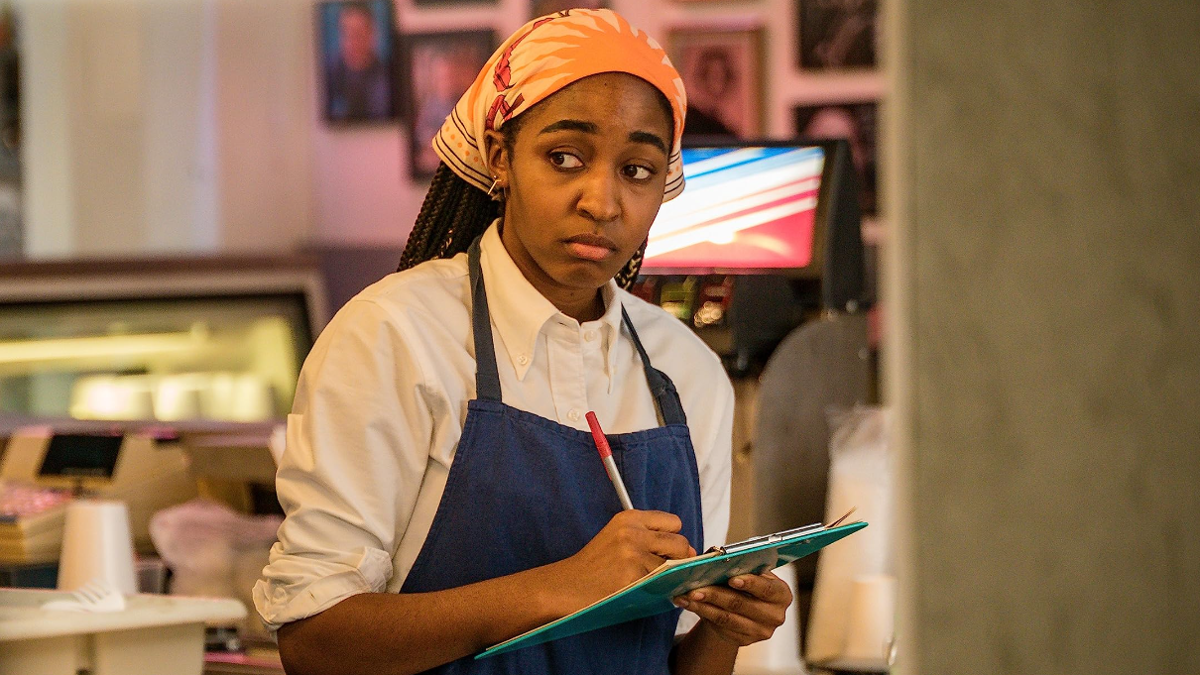
In regards to sound editing, re-recording, production mixing, and dialogue editing as separate entities, what sort of timescale is there to turn around an episode of The Bear from start to finish? Does that process begin as soon as a day or an episode’s filming is complete, or is it more a case of working with whatever pieces are readily available at any given time?
Steve Giammaria: I mean, ideally, we like to work on a locked, locked cut. So for The Bear, you get a week to edit it, and basically a day and a half to mix it, and then half a day of notes. So it’s a pretty quick turnaround. So we did the season, and there was a little bit of overlap.
And it got a little weird, schedule-wise, I think we did the whole first season in maybe seven weeks, eight episodes in seven weeks. That sounds about right. And season 2 was even faster. It was 10 episodes in seven weeks, which was… we had to bring in two teams.
And yeah, it was a whole thing. But yeah, it’s it’s pretty quick, The Bear finishes very quickly, so we have to make decisions, and go with it, and trust our instinct, because they’re dense episodes, and we gotta get through them. And they’re 30-ish minutes, and we got a day and a half to mix them and on to the next one, because that train does not stop.
Evan Benjamin: Yeah, that’s why it’s really important from my standpoint, I tried to give it to Major so I feel like it’s playing, the scene plays through. At least, I like to leave it that way. Because I know he doesn’t have a lot of time, he also has to get all that other stuff in; he has to do the music, he has a lot of work to do in a day and a half. So the dialogue, which is usually the most technically intensive portion of the mix, to get kind of in a place you want it to be before you add in all the other candy, I just want to make that as smooth as possible.
And it’s hard, because, you know, The Bear‘s The Bear! It’s a lot of people shouting at the same time. They’re all miked, thankfully, and Scott makes it out so you can hear all those people yelling. So that’s kind of great. But it also makes things very like being a traffic cop to some degree, trying to keep the chaos. But it’s controlled chaos, right? It’s not really like we’re letting everything loose. It sounds like chaos when you watch it. But it has to be something that Major is controlling.
Steve Giammaria: At any one moment, there’s really only two things you can focus on. And I like to only… I mean, The Bear breaks this rule, but you know, music/dialogue/effects, you get to pick two at any given moment. The Bear? They’re all there. But usually, one is dominating and one is supporting, and the other one is just barely hanging on.
Scott, you were laughing earlier when we were talking about the chaos, it sounds like you might have a story or two to tell there?
Scott Smith: Yeah, the chaos you see on screen is pretty much about the same chaos that’s happening off screen. It’s just constantly a struggle to keep up, and to figure out really what’s going to be important in the scene. If there’s something that I feel is going to be really a huge problem in post, noise-wise or dialog overlaps, sometimes I’ll talk to Chris and say, “Look, for cutting, you just need to get this piece by itself. So you’ve got some options in post.”
I mean, overlapping dialogue in general is still pretty much considered a no no, in most productions. And it was pretty obvious that part was out the window! I talked to the script supervisor, I said, “Is Chris aware of what problems this is going to cause later?” And he said, “Well, I don’t think that’s a factor with Chris.” So that was pretty much the end of that discussion!
Evan Benjamin: I actually kind look forward to those, they’re kind of interesting challenges, like little puzzle pieces when those things happen. And when they caught between two takes, and there’s people shouting, and so the takes involve little bits of actors repeated lines twice in the background as you cut from shot to shot because they obviously say that the same way twice.
That’s an interesting challenge to get around that stuff to make it all sound right. So I think I came up with a couple of like brand new techniques, especially for this series. You just be like, “Well, how am I going to get from point A to point B?” And eventually, you will figure it out. If you have enough raw material, enough time and you scratch your head, you’ll figure something out. I mean, if you can’t do that, you resort to ADR, but we really tried to avoid that.
Plus there’s some stuff you can’t have in ADR. When actors are getting very emotional and screaming, and there’s three people screaming at the same time, you’re not going to ever hit that intensity on the stage again, so you just sort of have to try to salvage what you have. Luckily, there’s a lot of noise going on. So that helps with that stuff, too. The more banging the better.
Scott Smith: Yeah, there’s certainly performances in the show that would be really, really difficult even for a really seasoned actor to recreate, I think. So trying to trying to get some sort of clean dialogue for a lot of those scenes is really important, because I seriously doubt that some of those performances could be recreated later.
Evan Benjamin: There’s a scene in season 1 with Carmy and Richie, they’re fighting over a big rubber doll that they’re trying to struggle to get into a car. And all they had on were body mics, because you couldn’t put a boom mic, as the shot was kind of a far shot and they’re struggling over it, and you couldn’t. And they were kind of funny, because I think they were ad-libbing the whole thing probably.
And they were just fighting over this thing and struggling to get it. But every time they were doing this, the balloon kept popping into their mics, and bouncing and rubbing against it. So the the actual sound originally was just a whole lot of rubbing balloon sounds. And you have to dig their dialogue out. But again, we have these tools now that are kind of remarkable, software-wise.
Things that a few years ago, you would not have been able to salvage, and we did. But there’s no way you can get those two guys in a room and have them recreate what they were doing while they were fighting over that thing, because it was hilarious, just hilarious. And they professional enough that they’d be able to kind of make an attempt at it, but it would never hit that same intensity. That’s sort of an example of where you have to just make the best of what you have available to you.
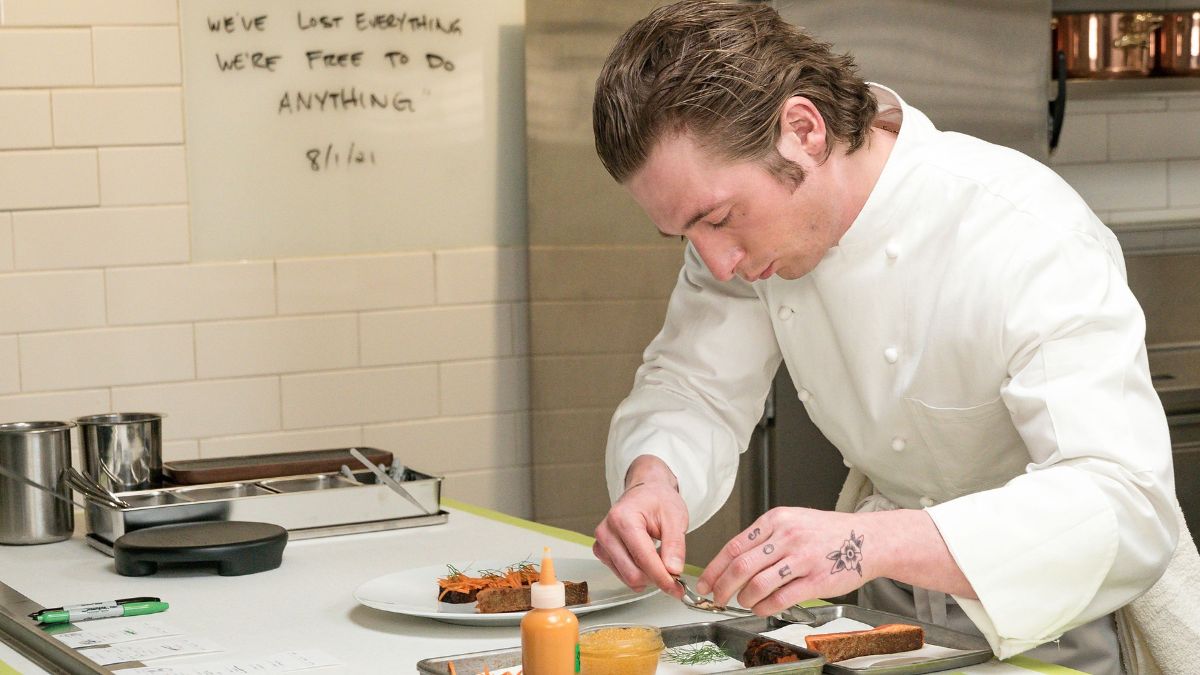
Sound and its many forms has often been described as an intuitive process, and busy kitchens are essentially the living embodiment of organized chaos, so did any of you need to adapt, alter, or refine your individual or established approaches when you first started working on the show? Or was it more a case of rolling with the punches and adapting to whatever came your way?
Evan Benjamin: Absolutely. Yep. I mean, I… Major: muted, buddy.
Steve Giammaria: Ah, sorry. The sound guy will figure it out! Chris, again, had a vision. And you know, you can’t argue with the results. So there was definitely some questioning at first when I looked at the pilot, and he sent me the scene that had two pieces of music at the same time, I’m like, “Are these choices?” He’s like, “No, both at the same time,” you know, kind of back and forth, like an argument. I’m like, “What?” But then gradually, I came to realize what they were going for.
And I was in, because you have to kind of go out there and with him and say, “Okay, I am with you, I see what you’re doing, let’s see what we can do, we’ll bring our expertise to it, and pull you in where you need to be pulled in.” But, man, he made a great season of television. So you know, can’t argue with the rules that were broken.
Evan Benjamin: And that’s fun to break some rules, and do that if you know what you’re doing. We’ve done this long enough, it’s great to have something that stretches you, and makes you think things a little differently. I think that’s actually kind of fantastic. Kind of a privilege, really, especially when it’s in service something that’s as great as that. You do have to kind of figure out some things where he’s asking you to break the rule that you have in your head the whole time, and that’s usually worked successfully.
Steve Giammaria: And it was always in service of story. You know, episode 7, the one-shot, the continuous 17-minute shot, it wasn’t just a technical flex, it added to the sense of urgency in the scene and how the story played out. It wasn’t just like, “Look, we have a Steadicam!” It was a whole thing – not to dump on other one-shots like that, there are some masterful ones out there – but I don’t know that I’ve seen one before that actually aids in the pace of the story, and and how the scene unfolds the way this one did.
There’s plenty of quieter, more introspective scenes throughout The Bear as well, but do those dialogue-driven moments present any different sort of challenges that you might even consider being more difficult or at the very least trickier to execute than the wham/bang kitchen sequences?
Steve Giammaria: That’s a great question. Yes. Sometimes the quiet ones, the quiet moment in the alley afterwards, at least for me, they’re harder. There’s nowhere to hide. I mean, in those scenes where nine people are shouting and things are exploding, it hides a lot of sins. But if it’s just, you know, Jeremy staring into the camera at the top of episode 8, there’s nowhere to hide, that’s got to be done. That’s got to be done right from Scott capturing on set to Evan, even though that’s a… I think it’s a seven-minute unbroken shot, Evan made a couple hundred edits in there to really clean it up, but not too clean.
Like you really have to, you know, you want to preserve the actor’s performance, but you don’t want anything in there that’s distracting. And then, we gotta mix it. There’s not a lot there. So yeah, it’s gotta be right. So you hit it on the head. Sometimes those scenes are, I mean, at least from my perspective, those are the harder scenes because there’s nowhere to hide. You have to get it right.
Evan Benjamin: No, that’s a very perceptive comment, really, because that is true. That stuff is very, you think, “Oh, smooth sailing here, seven or eight minutes of him staring at the camera and talking.” But the slightest thing is that… there’s an extra in that church scene that’s creaking their chair. You’ve got to figure out how to get rid of that and everything. Like, you can’t have anything in there for those kinds of shots. But if it was a big noisy scene with a lot of music and people screaming “Yes, chef” and our pots falling, then if somebody’s chair squeaks, who cares? So that stuff sometimes can be more challenging. Yeah, absolutely.
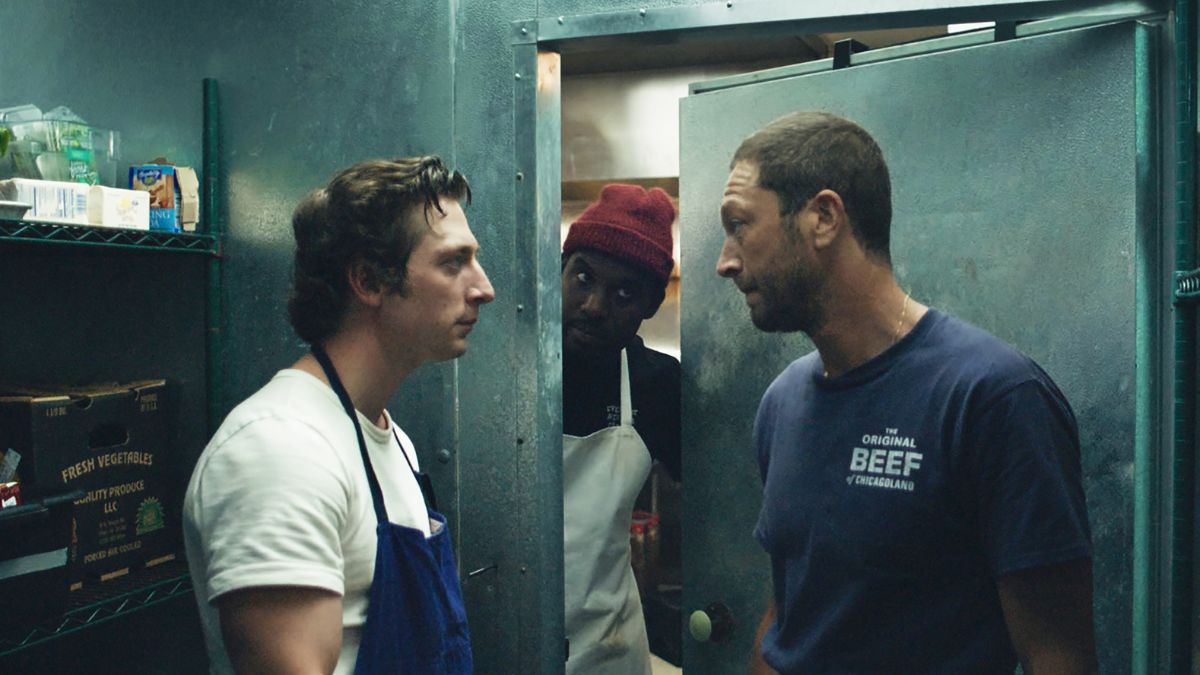
Season 2 broadens the scope and the scale while still focusing more on outside elements story-wise, so was it a refreshing change for you guys to expand The Bear’s audio horizons, or was there an element of it being daunting knowing that there were even more distinct layers and soundscapes coming your way?
Steve Giammaria: I think it was a great opportunity. If you just did 10 more episodes of kitchen chaos, I think it would have fallen a little flat. So you’ll notice the structure, the first two episodes that kind of reestablish this is the new Bear. It’s construction rather than cooking. Now, here’s the chaos. And then everyone goes out on their side quests.
And you have, really, moments with Marcus in Copenhagen where he’s he’s super chill, you have Richie in episode 7, my favorite episode. You know, all of these departures. And then even during those episodes, they’re going back to Chicago and getting the blast of like the classic Bear – just cacophony – but it helps contrast it even more, because you set that baseline of chaos. And then these people go out in the world, and you realize where their baseline is bonkers. And maybe they shouldn’t be doing what they’re doing.
Evan Benjamin: It was fun to work in some different different scenarios than the first season, for sure. Like that’s definitely a lot of fun. I did love that episode with Richie. And the one before it, the Christmas one, that everybody I think kind of knows. That one was probably the hardest stretch of, I think, work I’ve ever had to do.
I think that was just very, very complex, and difficult. That’s The Bear at its nuttiest, right? Just that whole dinner at the end there, that one was very, very difficult to to work your way through. Very, very, very complicated. But amazing, right? I mean, that’s an amazing thing, to watch all those actors at the top of their craft doing that. You’re just really trying to pull out the best version of what they did that you can. And the end result was fantastic to watch.
Scott Smith: Evan, I’m curious how many days or how many hours did you have in the edit on that episode for for the dialogue?
Evan Benjamin: Well, you get the same. I mean, well, that was an hour or so…
Steve Giammaria: Did you split that one? We brought on a second team for season 2, just because of the time crunch.
Evan Benjamin: That show was given an hour, so that was a two-week… So yeah, it took a week to do a half-hour, the same as it would take, but it’s just very very dense bit of business, that stuff at the end there, that whole dinner, which is a very long scene. Very very hard, but again, Scott gives you many dump trucks of raw material, which is great because that means that no matter what someone says, you’re going to have it on one of those many microphones, you just have to work your way through it. But that is great.
Scott Smith: The unfortunate part about dumping a lot of material on somebody like that is just the time it takes for somebody to sort through it all, because I don’t have time to make any notes on a scene like that. On feature films when I have the luxury of doing it at the end of the day, I might make some notes, particularly about wild tracks or something else. But it’s so time consuming to have to sort through all that material, and the fact that they even have the time to work through it is pretty amazing.
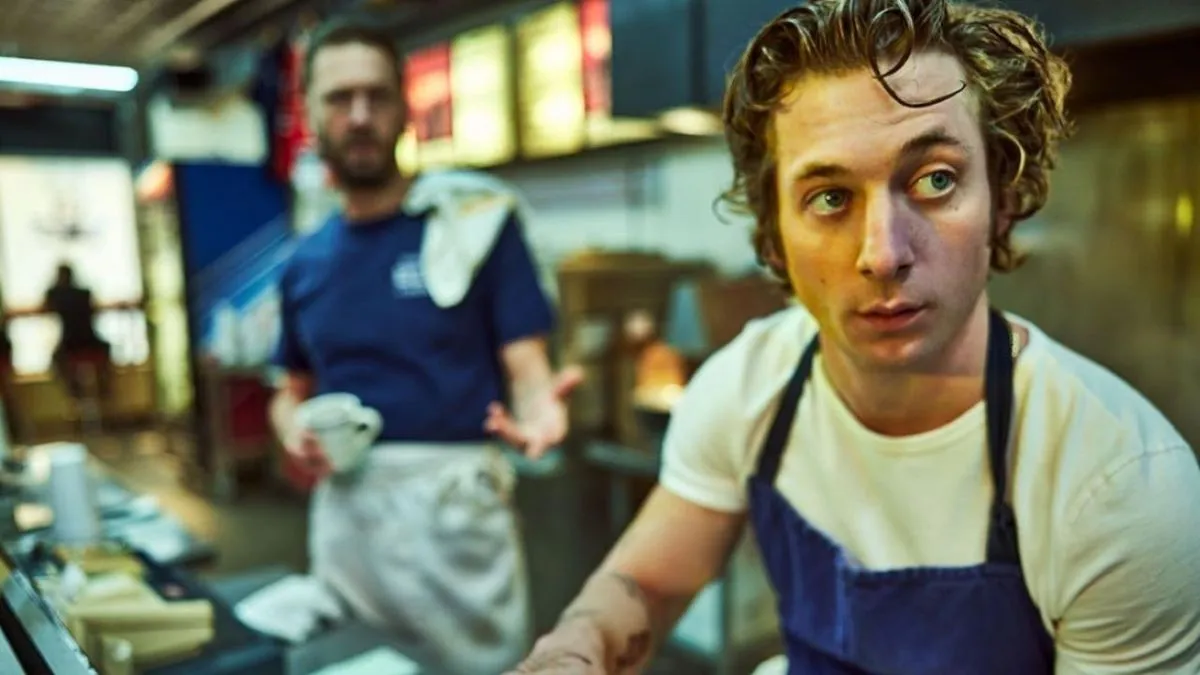
Are there any scenes or moments that stick out for you individually as being the best examples of what you brought to The Bear, and conversely, is there anything that sticks out as particularly challenging or difficult?
Steve Giammaria: I mean, every time I watch something, I have notes. So, I have watched this out in the wild. I’m like, “Oh, I’d walk that back”, but nothing that the layperson would be interested in! I mean, the best highlights from season 1, definitely episode 7, “Review,” that I think we were able to do some really unique stuff because of the nature of being able to really live in that kitchen, and do some panning with dialogue that you’re normally not allowed to do with a traditional edit.
And yeah, some of the quieter moments, I mean, the top of 1×08 with Jeremy and his monologue, I really think it’s such a departure from what the first seven episodes set up, but also just feels so right. And I really think… I mean Scott did such a great job. And there’s many, many other scenes that I love, it’s a thrill, a real joy to work on this show. Absolutely.
Evan Benjamin: I think the hardest thing was absolutely the balloon scene, the guys wrestling. That’s the thing that’s so funny. It’s a trivial little thing. It’s just kind of a funny little joke to the start of the show, and yet I found that was the hardest thing. But episode 7 is probably my favorite as well, because it’s just such an amazing thing, and just really makes you feel like you’re in one continuous place, it’s a completely convincing experience. Even for somebody who worked on it, to watch it after Major was done with it was just really a thrilling experience. Fantastic.
Scott Smith: If I have a moment for one quick comment, I want to point out that Major did some really interesting work with the panning of the dialogue in the show, too, which normally is another no no, another rule that we broke. But it really brings something to the whole context of how the kitchen works, and also incidentally makes the dialogue more intelligible because he’s got the important material at the front where most listeners can hear it, but then filling out the surrounds with all the other stuff that’s going on in the kitchen. It’s a great use of panning.
I apologize for making you walk down all those difficult roads, but you did it to me first.
Evan Benjamin: We’re sorry for traumatizing you!
Steve Giammaria: We’re so sorry!
Season 1 and season 2 of The Bear are streaming on Hulu, and on Disney Plus for international subscribers.

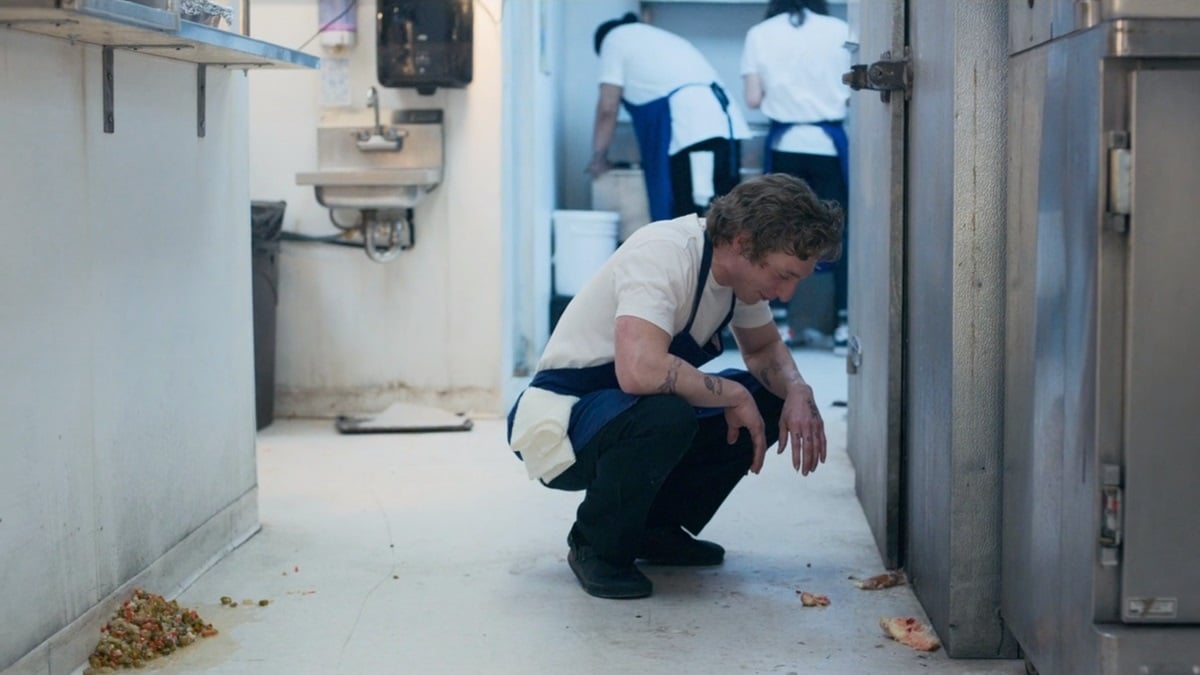
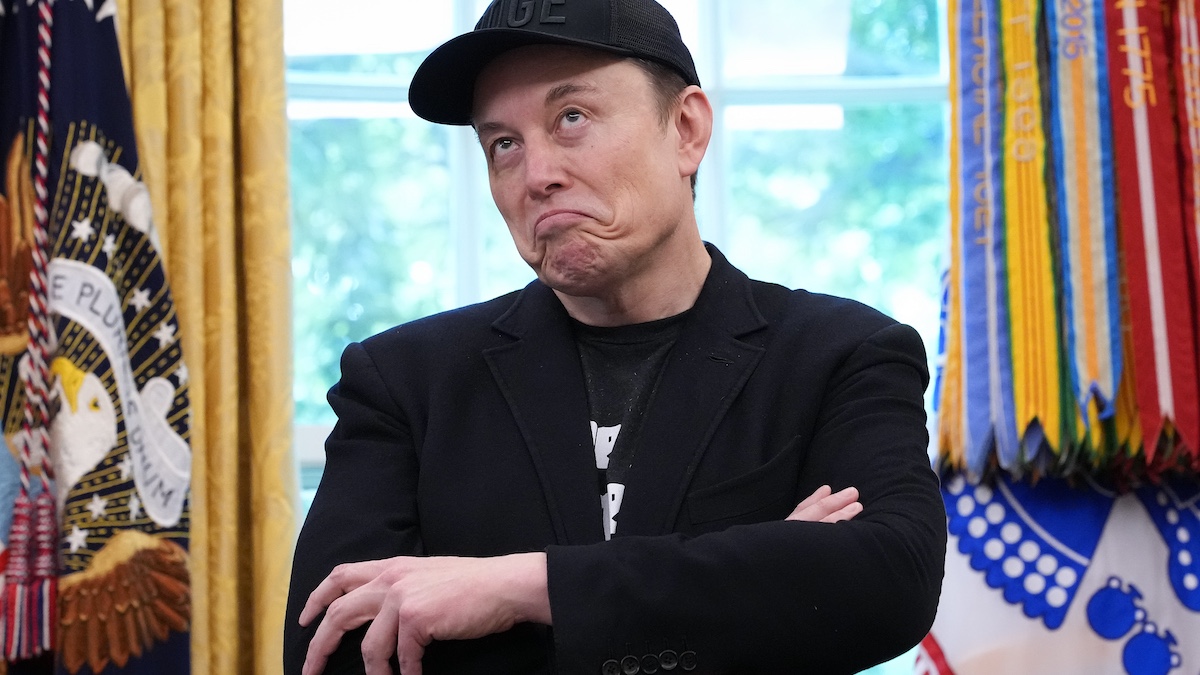
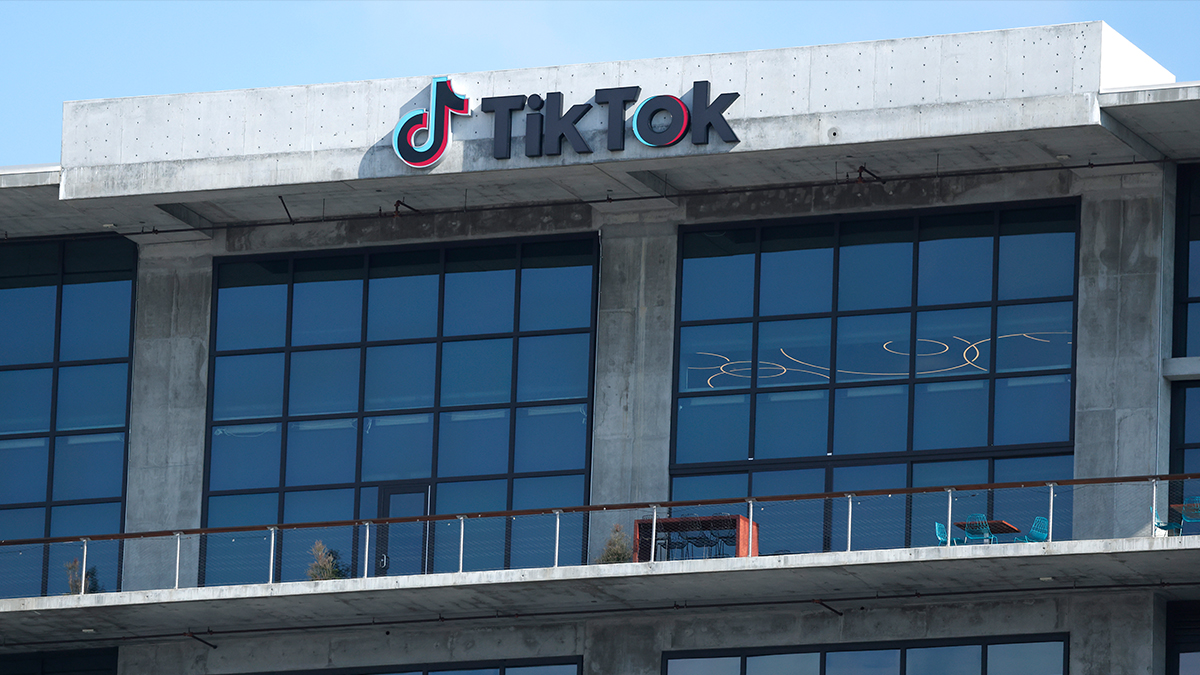
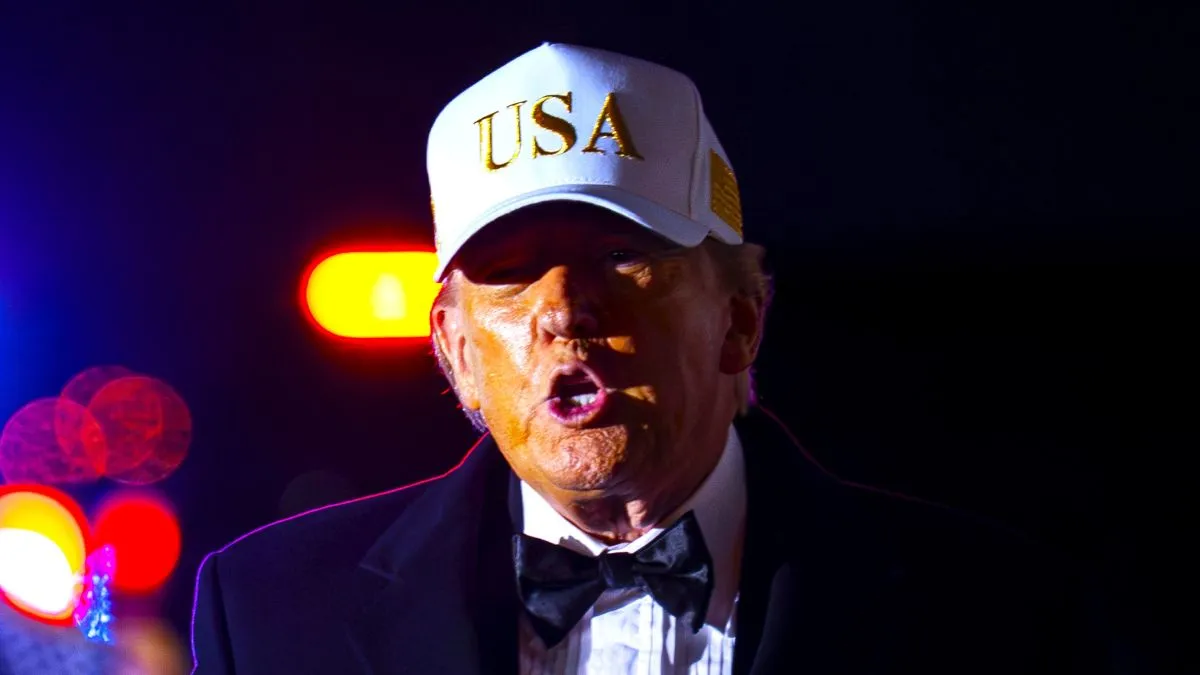
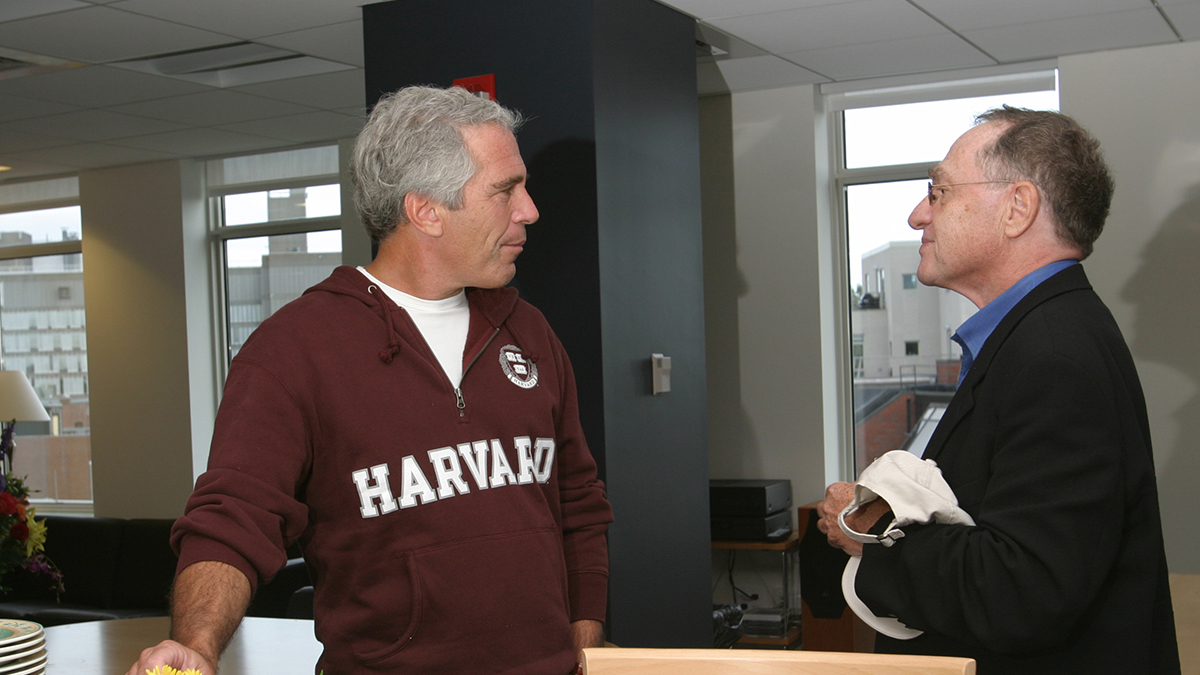
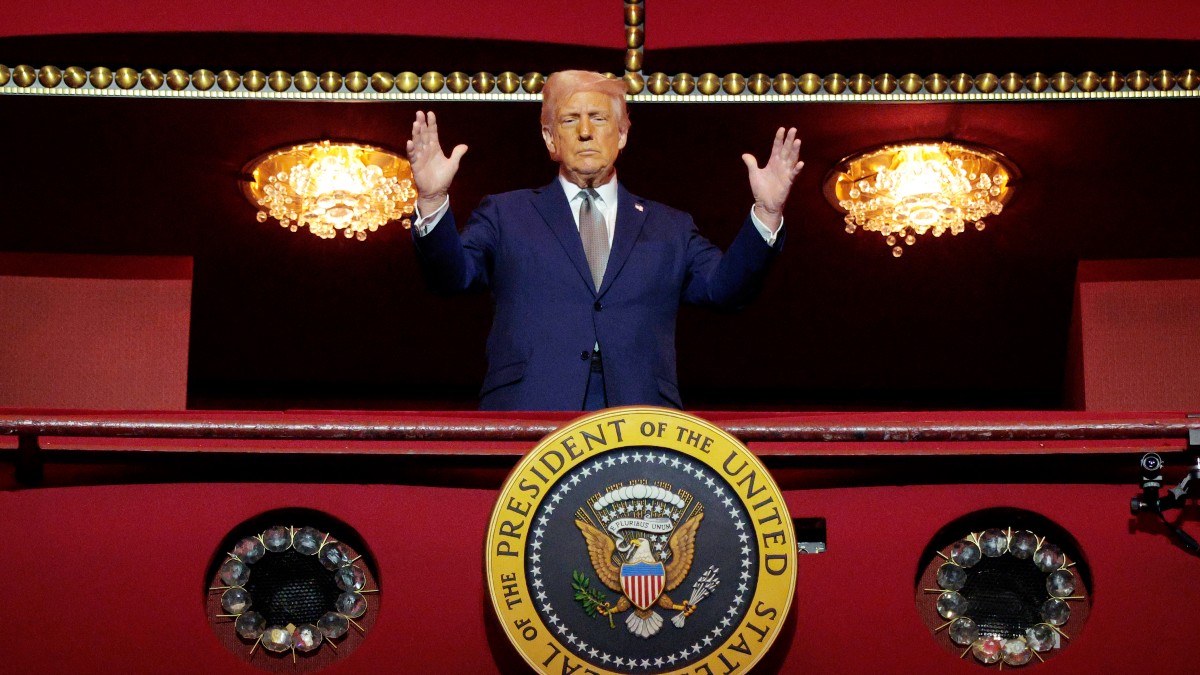
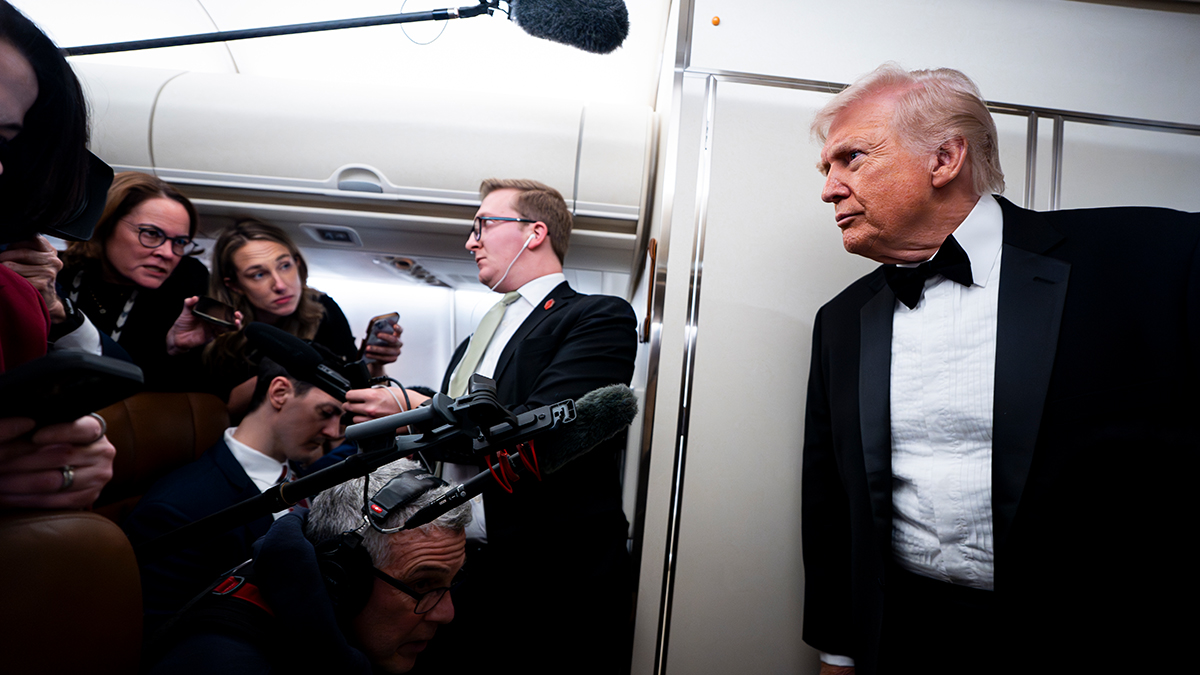

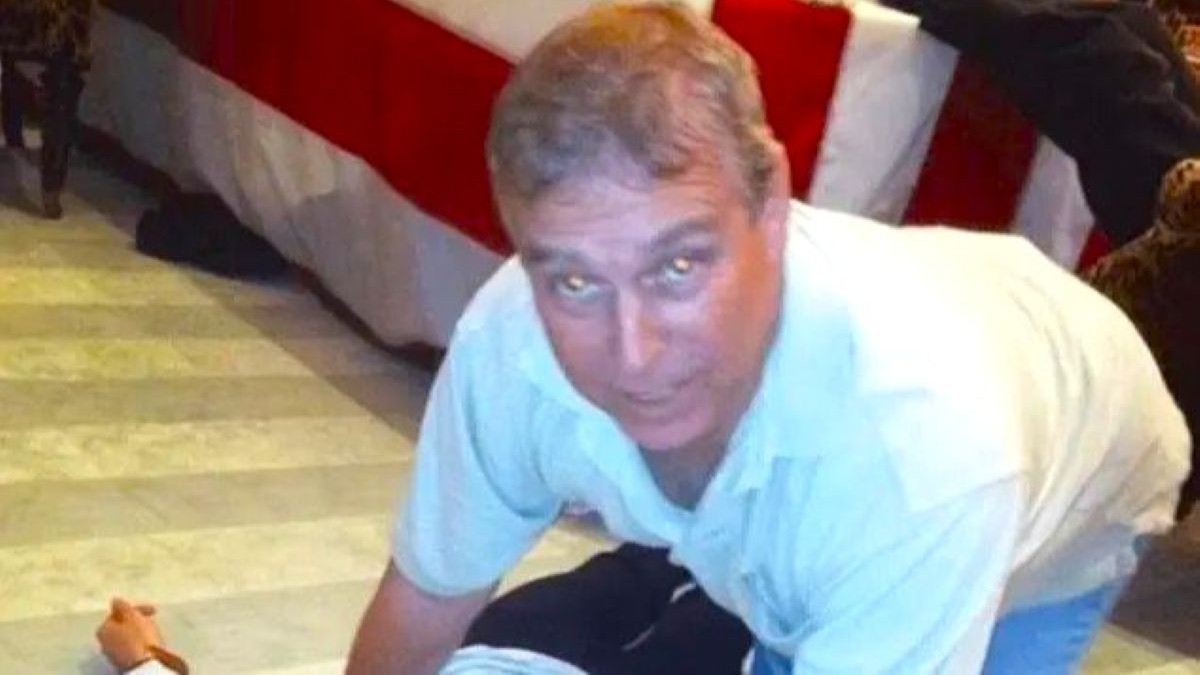

Published: Aug 8, 2023 05:31 am